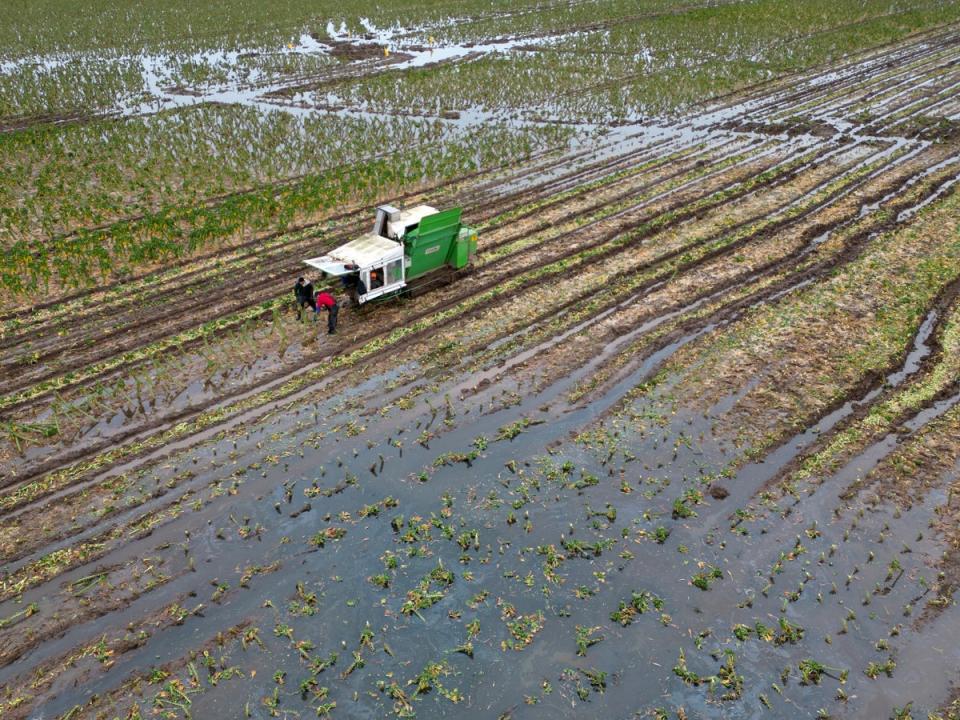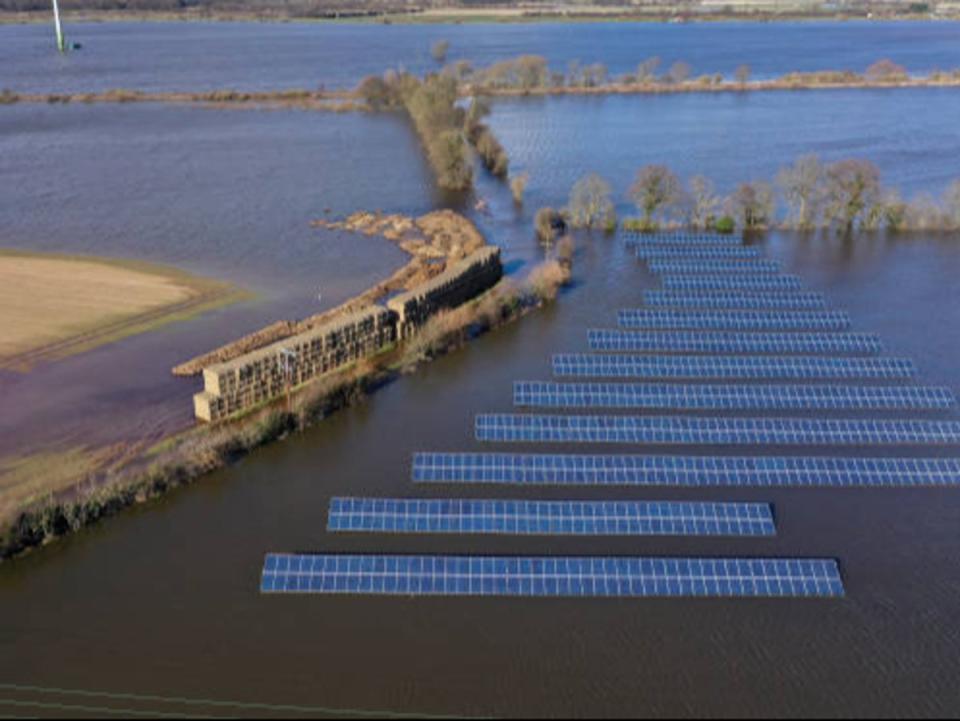Heavier rain downpours will mean food shortages and hit farm animals, union warns
Fruit and vegetables will be in short supply, with crop harvests severely hit, as winter downpours become heavier in future, farm leaders have warned.
Farmers will struggle to keep cattle fed because grass will be underwater for longer periods amid climate change.
Scientists from the World Weather Attribution study have concluded that climate change made rainfall during storms in the UK and Ireland 20 per cent heavier over the winter.
The two countries suffered 13 to 14 severe storms in 2023-24, and in some places, farmland is still waterlogged.
Similar heavy rainfall is 10 times more likely in future, the experts say.
Crops were left inundated, and cattle were taken indoors, being fed hay and silage instead of grass in winter’s record rainfall.

The National Farmers Union (NFU) warned of a drop in food available and its quality, with higher imports, because of the devastating flooding.
Vice-president Rachel Hallos said: “While farmers and growers continue to bear the brunt of it for now, consumers may well see the effects through the year as supply tightens.
“The wet weather over the past eight months demonstrates just how vulnerable British food producing businesses are, and highlights the possibility of more crops being imported, potentially produced to standards that would be illegal here.”
Domestic food security must be given priority, she said, calling for a plan and financial resources from the government to help farmers adapt.
“Our members are still waiting to hear whether they will receive support through the Farming Recovery Fund, which is adding extra stress and uncertainty to an already difficult time with farmer confidence at an all-time low.
“Funding also has to be provided for agencies such as the Environment Agency, so it can deliver proactive management and reinvestment into the watercourses and flood defences it is responsible for.”

George Hosier, a Wiltshire farmer, said in some parts of the UK growers did not plant much in the autumn because of months of above-average rainfall, and likewise have been unable to plant in the spring. “For them, it will be disastrous,” he said.
In some cases, there will be no profit left in farming, he told Radio 4’s Today, and some landowners had applied to put solar panels on swathes of land.
David Eudall, of the Agriculture and Horticulture Development Board, said last month that farmers had not been able to plant as much wheat as normal.
He said: “With those roots sitting in the water, we’re seeing around 40 per cent of the crop in the country in a poor or very poor condition at the moment.”
Farmers have reported ewes lying in pools of water, and high numbers of new-born lambs dying of cold.


